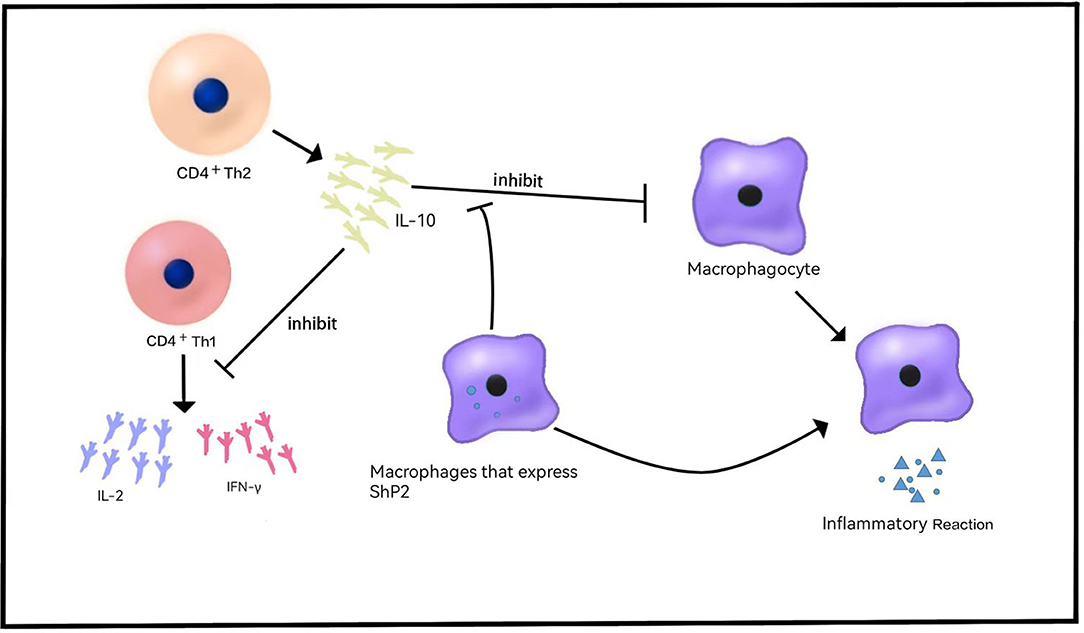
95% of researchers rate our articles as excellent or good
Learn more about the work of our research integrity team to safeguard the quality of each article we publish.
Find out more
CORRECTION article
Front. Pediatr. , 12 May 2022
Sec. Pediatric Gastroenterology, Hepatology and Nutrition
Volume 10 - 2022 | https://doi.org/10.3389/fped.2022.894682
This article is part of the Research Topic Inflammation and Repair in Inflammatory Bowel Disease: Clinical, Translational and Experimental Studies View all 6 articles
This article is a correction to:
New Insights and Advances in Pathogenesis and Treatment of Very Early Onset Inflammatory Bowel Disease
A Corrigendum on
New Insights and Advances in Pathogenesis and Treatment of Very Early Onset Inflammatory Bowel Disease
by Li, Q.-Q., Zhang, H.-H., and Dai, S.-X. (2022). Front. Pediatr. 10:714054. doi: 10.3389/fped.2022.714054
In the original article, there was a mistake in Figure 1 as published. IL-2 and IFN-γ was originally described as a soluble factor released by CD4+ Th2. This should be changed to “IL-10 was described as a soluble factor released by CD4+ Th2 cells that can preclude the release of CD4+ Th1 cytokines, such as IL-2 and IFN-γ.” The corrected Figure 1 appears below.

Figure 1. Role of IL-10 in VEO-IBD. IL-10 is released by CD4+Th2 cells and inhibits the release of cytokines such as IL-2 and IFN-γ. IL-10 inhibits the release of inflammatory cytokines and the inflammatory response. Shp2 can reduce the sensitivity of macrophages to IL-10 and produce proinflammatory effects.
In the original article, there was an error in Immune Dysregulation, “Cytokines and Their Receptors.” “IL-10 was originally described as a soluble factor released by CD4+ Th2 cells that can preclude the release of CD4+ Th4 cytokines, such as IL-2 and IFN-γ (22) (Figure 1)” has been corrected to “IL-10 was originally described as a soluble factor released by CD4+ Th2 cells that can preclude the release of CD4+ Th1 cytokines, such as IL-2 and IFN-γ (22) (Figure 1).”
The authors apologize for this error and state that this does not change the scientific conclusions of the article in any way. The original article has been updated.
All claims expressed in this article are solely those of the authors and do not necessarily represent those of their affiliated organizations, or those of the publisher, the editors and the reviewers. Any product that may be evaluated in this article, or claim that may be made by its manufacturer, is not guaranteed or endorsed by the publisher.
Keywords: microRNA, circular RNA, biologics, immunity, gut microbiota
Citation: Li Q-Q, Zhang H-H and Dai S-X (2022) Corrigendum: New Insights and Advances in Pathogenesis and Treatment of Very Early Onset Inflammatory Bowel Disease. Front. Pediatr. 10:894682. doi: 10.3389/fped.2022.894682
Received: 12 March 2022; Accepted: 25 April 2022;
Published: 12 May 2022.
Approved by:
Andrew S. Day, University of Otago, New ZealandCopyright © 2022 Li, Zhang and Dai. This is an open-access article distributed under the terms of the Creative Commons Attribution License (CC BY). The use, distribution or reproduction in other forums is permitted, provided the original author(s) and the copyright owner(s) are credited and that the original publication in this journal is cited, in accordance with accepted academic practice. No use, distribution or reproduction is permitted which does not comply with these terms.
*Correspondence: Shi-Xue Dai, ZGFpc2hpeHVlQGdkcGgub3JnLmNu; c2hpeHVlZGFpQGhvdG1haWwuY29t
†These authors have contributed equally to this work and share first authorship
Disclaimer: All claims expressed in this article are solely those of the authors and do not necessarily represent those of their affiliated organizations, or those of the publisher, the editors and the reviewers. Any product that may be evaluated in this article or claim that may be made by its manufacturer is not guaranteed or endorsed by the publisher.
Research integrity at Frontiers

Learn more about the work of our research integrity team to safeguard the quality of each article we publish.